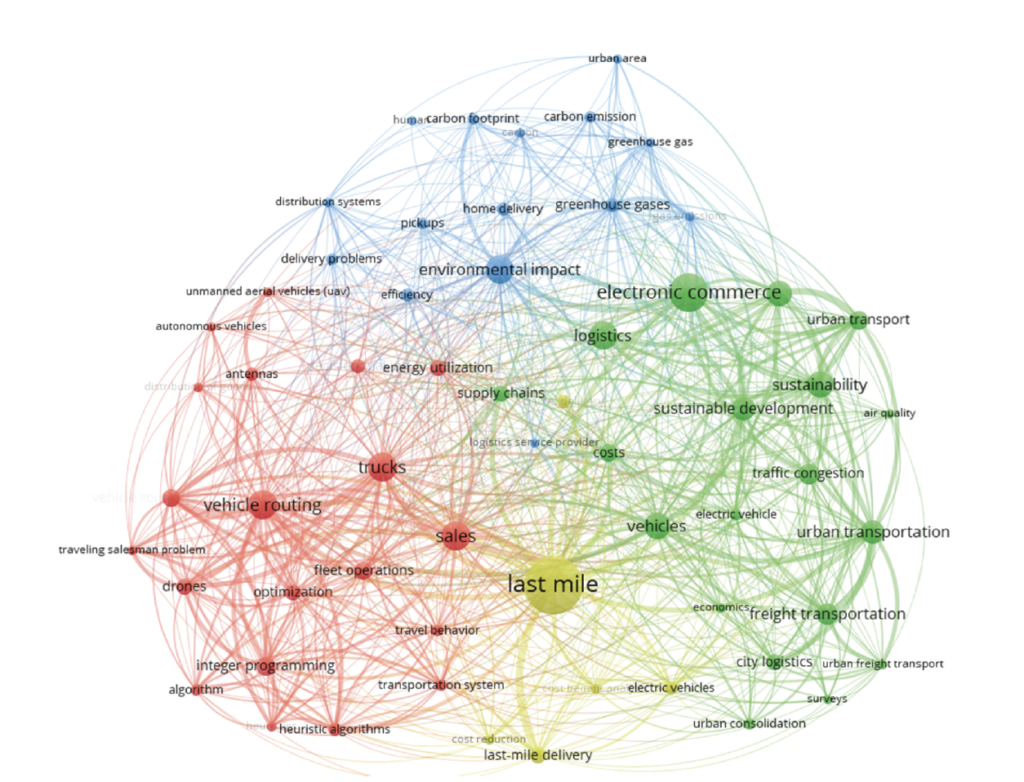A new paper examines the impact of e-commerce on urban last-mile distribution through a comprehensive analysis of scientific studies. A corpus of 317 publications spanning two decades was reviewed, identifying 111 pertinent sources. Utilizing bibliometric analysis and systematic assessment, the study comprehensively reveals the effects of e-commerce on last-mile delivery.
Key findings encompass environmental, economic, social, and technological impacts. Notably, while existing research has explored these aspects, the spatial implications of e-commerce remain inadequately addressed. This paper bridges this gap, contributing to the discussion on freight sustainability by elucidating current trends and outlining future research directions in last-mile e-commerce delivery.

Cluster 1 emphasizes themes in e-commerce last-mile logistics, focusing on distribution network architecture and technological advancements.
Cluster 2 predominantly addresses the sustainability of e-commerce, encompassing studies on the environmental, economic, and social implications of online shopping expansion.
Cluster 3 predominantly examines the environmental impact of last-mile e-commerce delivery, focusing on carbon emissions and sustainable delivery methods.
Cluster 4 delves into e-commerce last-mile delivery strategies, exploring electric cargo bikes, parcel lockers, and sustainable city logistics approaches.
Several research gaps emerge from the analysis. Firstly, there’s a need to explore the integration of reverse logistics within last-mile delivery systems to optimize processes like product returns and recycling. Secondly, understanding the reciprocal relationship between emerging technologies and last-mile delivery systems is essential for future innovations. Comprehensive spatial analysis beyond the impact on brick-and-mortar businesses is necessary to assess the broader implications of urban accessibility and spatial distribution. Moreover, exploring the unique challenges and opportunities in emerging markets can provide context-specific strategies for sustainable urban development. Lastly, assessing the long-term implications of last-mile e-commerce delivery on sustainable urban development is crucial for informing urban policies and practices.
This article enriches scholarly discourse on freight sustainability by providing insights into prevailing research trends and outlining potential avenues for further exploration. Addressing the research gaps can enhance understanding of the multifaceted impacts of last-mile e-commerce delivery and contribute to developing sustainable urban environments.
